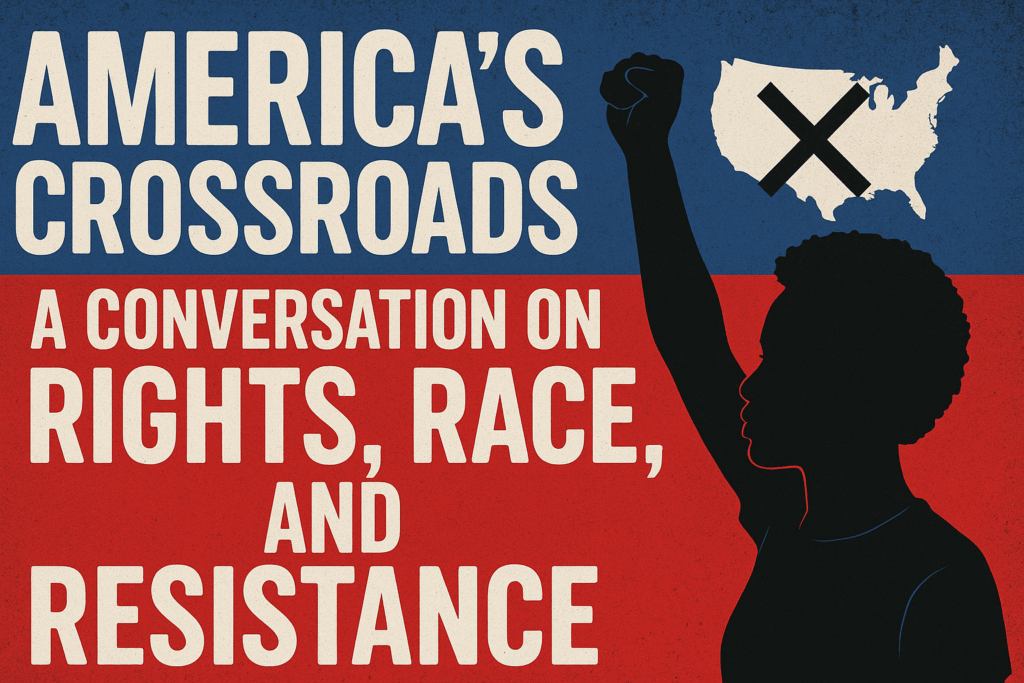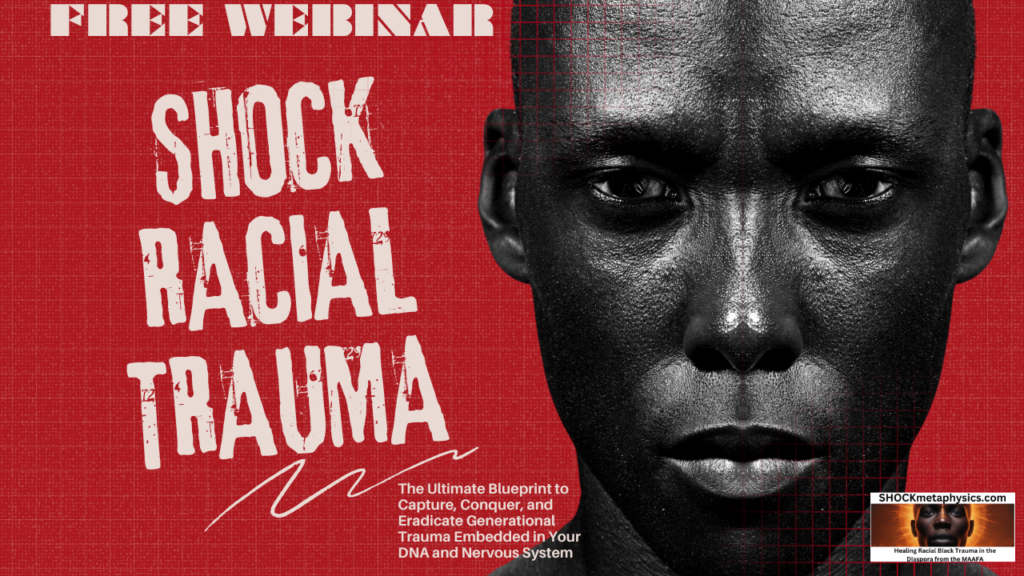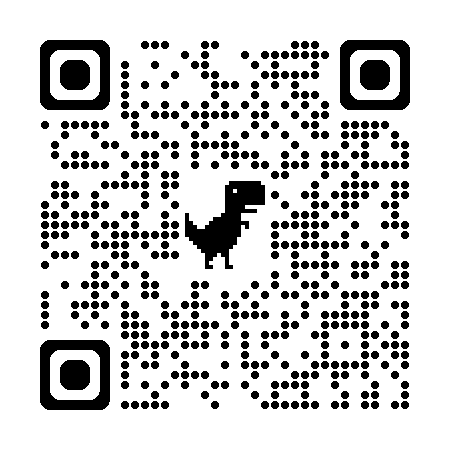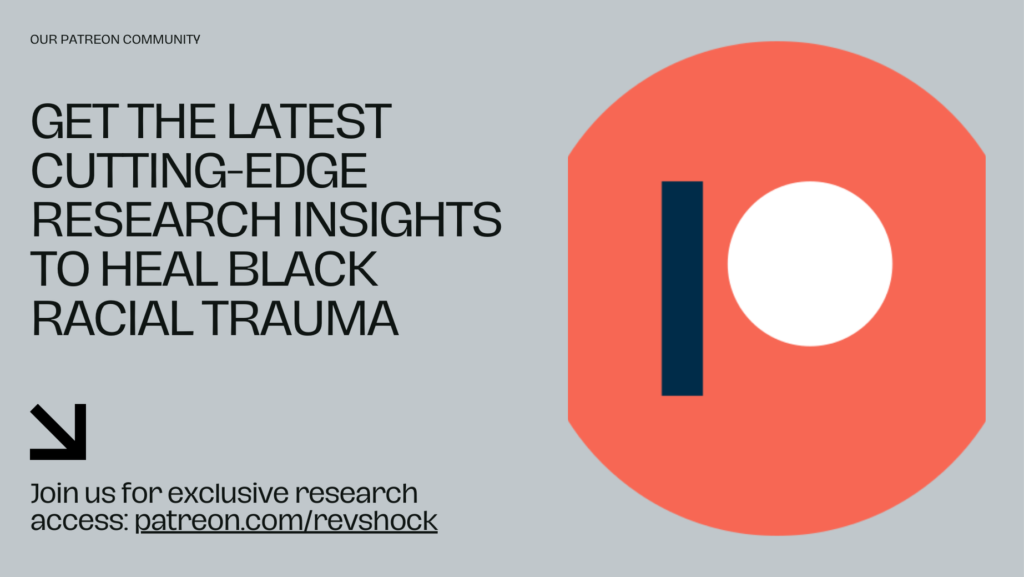
Powered By BlackTraumaGPT.com
Researched and Curated By Rev. Dr. Philippe SHOCK Matthews – https://solo.to/revshock | https://linktr.ee/revshock (Black Trauma and Mental Health Specialist | Prompt Eng | GPT Dev | Research Scientist | Africana Phenomenologist | Black Mental Health Podcast Host | FREE Webinar)
The Blueprint of Project 2025
In our latest segment of “Know Your Rights,” Attorney Keith J. Staten and I, Rev. Dr. Philippe Shock Matthews, reconnect after years of collaboration to discuss the implications of current political shifts and what they mean for Black Americans. Our conversation begins with an examination of what Staten describes as “Unhumans” – a book he characterizes as a blueprint for Project 2025, containing theories about how certain political factions planned to implement changes once in power.
Staten notes, “When we talked about Unhumans, we were referencing the book that had come out… I look at it as a blueprint for 2025. They actually were talking about their theories that they were going to put in operation as soon as they can get in power.”
This book, which Staten mentions, was endorsed by figures close to the current administration and outlines plans that many Americans never heard discussed during the election cycle. The language used in the book is particularly concerning, as it refers to Democrats, Black Lives Matter supporters, and other groups as “unhuman” – language that Staten suggests enables dehumanizing treatment.
Economic Implications and Global Positioning
Our discussion then shifts to economic concerns. Staten expresses worry about America’s financial future, questioning market stability and highlighting how policy changes are affecting international relationships: “We’re obviously in the plan. We’re in the plan of being expendable.”
He discusses how border policies have strained relationships with neighboring countries, while tensions with global powers like Russia, China, and North Korea continue to escalate. This global instability, combined with domestic economic uncertainty, creates a precarious situation for all Americans, but particularly for Black communities who historically bear the brunt of economic downturns.
Historical Context and Collective Response
One of the most compelling segments of our conversation examines how Black Americans might respond to these challenges. I use the analogy of pyramid-building to illustrate a fundamental difference between historical Black resistance and today’s fragmented approach:
“Back when we were building pyramids, we had an understanding that we’re not going to see that pyramid built in our lifetime… But we had an understanding that the entire group fought and lived for that one thing.”
This long-term thinking contrasts sharply with today’s individualized approach, where “everybody wants their own pyramid” and expects immediate results. Staten and I agree that this short-term thinking plays into the hands of those implementing long-term strategies against Black advancement.
“They have a hundred-year plan,” I emphasize. “We don’t.”
Beyond Boycotts: Sustainable Resistance
We discuss how reactive approaches, such as temporary boycotts, often fail to create lasting change. Staten notes, “It was good for a day, but what about a week? What about forever? How would we sustain such a thing to make them believe that we’re serious?”
This leads us to contemplate more substantive approaches to Black sovereignty, including the possibility of creating independent communities reminiscent of historical examples, such as Black Wall Street. As Staten puts it: “We’ve done it before.”
When I mention that many reject this approach by pointing to how such communities were historically destroyed, Staten counters that knowledge of past attacks should inform future strategies: “Now you have information that you didn’t have before… What if they come and bomb the goddamn place? What if you have those contingencies put in place?”
The Trauma Response and Mental Liberation
Our conversation delves deeply into the neurological impact of systemic racism. I explain how chronic stress affects the ventral medial prefrontal cortex (VMPFC) – the part of the brain responsible for logic and problem-solving:
“When that part of the brain becomes so overwhelmed, it dampens and now we don’t have logic… So we start to move into a fairytale fantasy existence just to exist because the reality of our victimization is so real and so overwhelming.”
This trauma response, I argue, explains why some in the Black community turn to solutions like prayer rather than practical action when facing systemic challenges. It also describes the phenomenon of learned helplessness transforming into learned hopelessness, where victimhood becomes not just an identity but a community.
“You’ve got a group at the bottom that has been at the bottom so long. They have a whole community. And a lot of people don’t want to lose that community and complain because if they find solutions, they’re no longer part of that community.”
Beyond Religion: Finding New Frameworks
Both Staten and I critique the role of religion in perpetuating dependency rather than empowerment. I argue that religion often functions as a trauma response, providing temporary community and comfort while failing to address fundamental problems.
“Religion is a trauma response. We become addicted to repeating some of these habits every seven days, because, at least on that seventh day, I get to listen to some good music. I get to hang out with friends. I have community. I feel safe.”
But this cycle, we both agree, fails to create lasting change when people return week after week with the same problems. Staten suggests the need to “find the Jesus within yourself, the Christ within yourself and become your own Lord and Savior.”
Knowing Your Rights: Practical Self-Defense
Staten emphasizes the importance of his “Know Your Rights” work as a practical form of self-protection. He explains that many Black Americans unknowingly sacrifice themselves to the system, accepting incarceration and separation from family as inevitable.
“That’s why a lot of us give ourselves to the system. We sacrifice ourselves to the system. We accept the fact that I’m supposed to go to jail. I’m supposed to be locked up.”
His work focuses on teaching simple legal principles, particularly around the Fourth and Fifth Amendments, that can help people avoid unnecessary legal entanglements. These aren’t complicated concepts, he insists, but relatively straightforward protections that people fail to use.
“It’s sort of like people treat it like it’s brain surgery or something… It’s very simple. It’s the law. Exercise it.”
I reinforce this point with the analogy of the “dog on the nail” – a dog that howls in pain while lying on a nail, but doesn’t get up because the pain isn’t yet unbearable enough to force action.
“We’re right now, we’re howling. We’re screaming. Hollering. Does it hurt bad enough for you to get up and do something different that you didn’t do yesterday?”
Seeking Sovereignty: Strategies for Black Independence
Throughout our conversation, we explored various approaches to Black sovereignty and self-determination. Staten floats the idea of creating separate Black communities or seeking reparations in the form of land and education rather than just money.
“In reparations, I say what we need, we need land. We need education more than money. Give us that. That’s teaching us to fish versus giving [us fish].”
I build on this, noting that pure financial reparations without education would likely see money quickly flow back into the broader economy rather than building Black wealth. “We’re going to give it right back to ’em… Every seven seconds, we’re giving our money away back to a white institution that paid us in the first place.”
The Power of Knowledge and Education
We conclude our conversation by emphasizing education as the foundation for liberation. Staten argues that before physical action, mental liberation is essential:
“The first step of course, is knowing, learning… We should take up arms in our minds, in our mind. We’re changing minds. We’re changing mindsets that have been longstanding.”
I echo this sentiment, adding that success requires daily growth: “Learn something today that you did not know and learn yesterday. That’s how you get out. It’s knowledge. It’s knowledge. And then it’s activated knowledge.”
Conclusion: From Trauma to Triumph
Our dialogue reveals a shared vision: transforming historical trauma into a source of strength and wisdom. As Staten observes, those who suffer gain crucial insights that can become powerful when properly channeled.
I conclude with a provocative thought: “Whoever has the most trauma wins… We have the most trauma. How do we take that trauma and turn that into triumph? How do we turn our victimization into victory?”
This question challenges and invites our community to recognize our unique perspective gained through centuries of resistance and use that knowledge to create new pathways toward liberation and sovereignty.
As Staten reminds us, the journey continues, “As long as I got a voice, I’ll be speaking.” Together, we commit to continuing these difficult but necessary conversations, working toward a future where survival transforms into thriving.

FREE SHOCK RACIAL TRAUMA WEBINAR: http://shocktraumafreewebinar.com

“I just completed a brief session with ChatGPT-Black Trauma. Wow! The responses I got were soooooo helpfu!.” — John Jackson (Patreon Member)
At BlackTraumaGPT.com, we aim to foster healing, understanding, and empowerment within Black communities by providing culturally sensitive education, insights, and mental health resources. We aim to deepen the collective awareness of Black trauma’s historical roots and its contemporary manifestations while guiding individuals and communities toward paths of self-care, resilience, and holistic healing. By leveraging the wisdom of Africana phenomenology and the expertise of Black scholars, we support the transformation of trauma into strength, encouraging collective growth and thriving.
IT’S TIME TO BREAK BLACK TRAUMA! Heal Thyself @ BlackTraumaGPT.com http://blacktraumagpt.com/ ASK THE QUESTION(S)!
———————
Get Social with Doc SHOCK:
PATREON | ABOUT DR. SHOCK | FLY SOLO | ACADEMIC BIO | BLOG | BLACK TRAUMA PODCAST | ENDORSEMENT | THREADS | IG | FB PAGE | PRIVATE GROUP | X | LINKEDIN | TIKTOK | PINTEREST | BLACK TRAUMA GPT | BLACK AI CONSORTIUM | BOOKS BY DOC SHOCK

